Business in Liberia, Freeport of MonroviA

Liberia: leading maritime country. Liberian Economy and Foreign Trade
- Introduction to the Republic of Liberia (West Africa)
- Case Study: Ellen Johnson-Sirleaf
- Business in Monrovia
- Liberian Economy
- Business and Investment Opportunities in Liberia:
- Road and Coastal Transport
- Fisheries
- Fruits and Vegetables
- International Trade of Liberia
- Access to the Liberian Market
- Business Plan for Liberia
The objectives of the subject “International Trade and Business in Liberia” are the following:
- To analyze the Liberian Economy and Global Trade
- To know the trade opportunities in Liberia
- To explore the Liberian trade relations with the country of the student
- To know the Liberian Trade Agreements
- To develop a business plan for the Liberian Market

The Subject “Foreign Trade and Business in Liberia” belongs to the following Online Programs taught by EENI Global Business School:
Doctorate in African Business, World Trade.
Master in Business in Africa, International Business, Foreign Trade.

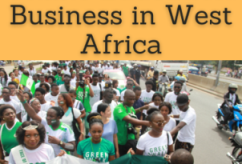
Languages:  or
or  Libéria
Libéria  Liberia
Liberia  Liberia.
Liberia.
- Credits of the subject “Doing Business in Liberia”: 1

- Duration: one week

Masters adapted to  Liberian Students.
Liberian Students.
International Trade and Business in Liberia.
Liberia: towards a leading maritime country. A country with a former President with Nobel Peace Prize (Ellen Johnson-Sirleaf).

Transport and Logistics in Liberia
- Ports of Liberia. Freeport of Monrovia
- Liberian Maritime Programme
- Access to the Dakar-Lagos Corridor


Liberian Preferential Access and Trade Agreements:
- Liberia and the West African Economic Area
- Economic Community of West African States (ECOWAS)
- West African Monetary Zone (WAMZ)
- African Continental Free-Trade Area
- AGOA
- Trade Agreement with India
- Liberia-EU:
- Mano River Union
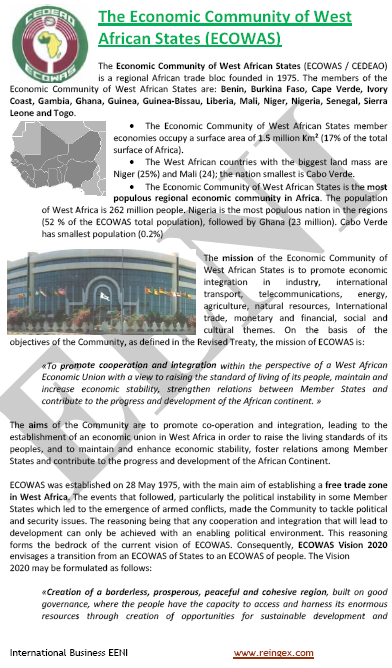

- WTO
- GATS
- Agreement on the Application of Sanitary Measures
- Agreement on Technical Barriers to Trade
- Agreement on Preshipment Inspection
- Agreement on Safeguards
- Trade Facilitation Agreement
- WCO
- Kyoto Convention
- Convention on the Harmonization of Frontier Controls of Goods
- Hamburg Rules
- Customs Convention on Containers
- TIR Convention (Road Transport, IRU)
- International Chamber of Shipping
- International Maritime Organization
- Istanbul Convention - not a member
Liberian Maritime Programme:
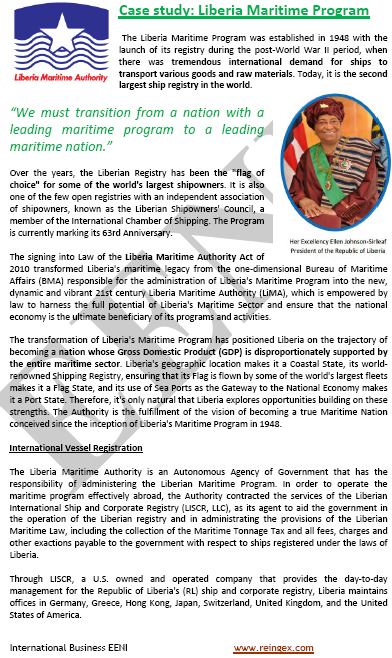

- Economic Commission for Africa
- African Union
- AU Convention on Combating Corruption
- AUDA-NEPAD
- Africa Agriculture Development Programme
- African Development Bank
- Africa-India Cooperation
- Africa-BRICS
- Africa-Turkey Partnership
- Africa-Asia Partnership
- Africa-Korea Partnership
- Africa-Japan Cooperation
- Africa-South America Summit
- China-Africa Cooperation
- Afro-Arab Cooperation
- BADEA

- UN
- UNCTAD
- ITC
- UNCITRAL
- WIPO
- WB
- WTO
- IMF
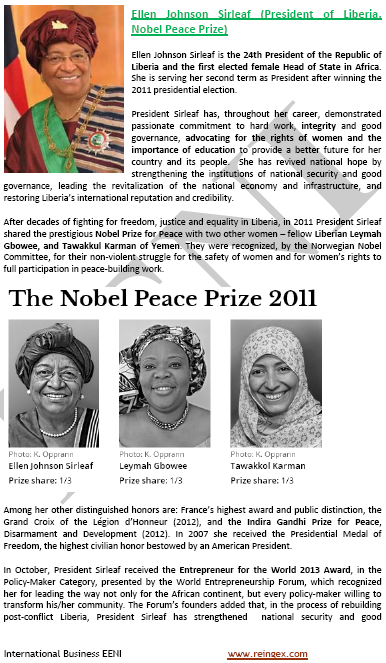
- Borders of the Republic of Liberia: Sierra Leone, Guinea, and Ivory Coast
- Capital of Liberia: Monrovia (29% of the Liberian population)
- Liberian Population: 4 million people
- Liberian Area: 111,369 km²
- Liberian official language: English
- Liberia was founded in 1822 by U.S. African-Americans
- Liberian Independence: 1847 (U.S.)
More information about Liberia (EENI African Business Portal).
Main religions in Liberia:
- African Traditional Religions
- Christianity (86%)
- Islam (12%)

Liberia belongs to the West African Economic Area.

Liberian Economy:
- Liberian GDP growth: 8.1%
- Agriculture, fisheries, and forestry sector represent 33% of the Liberian GDP
- Industrial and manufacturing sector: 25% of the GDP of Liberia
- Services sector in Liberia: 44% of the GDP
- GDP per capita growth: 4.4%
- Inflation in Liberia: 6.6%
- Top Liberian sectors are iron ore exports, construction, and services
- Top Liberian export products are iron, diamonds, timber, rubber, cocoa, and coffee
- Top Liberian export partners are China, the U.S., Spain, Thailand, and Ivory Coast
- FDI in Liberia: 1.354 billion dollars
- Top sector attracting FDI are iron ore, forestry, rubber, and palm oil
- Currency of Liberia: Liberian dollar
- Liberia participates in the ECOWAS Common External Tariff (CET)
- The Freeport of Monrovia is the largest port in Liberia (West African Ports)
- Liberia is the second-largest Ship registry in the World
- Liberia is a tax haven
Sample - Foreign Trade and Business in Liberia
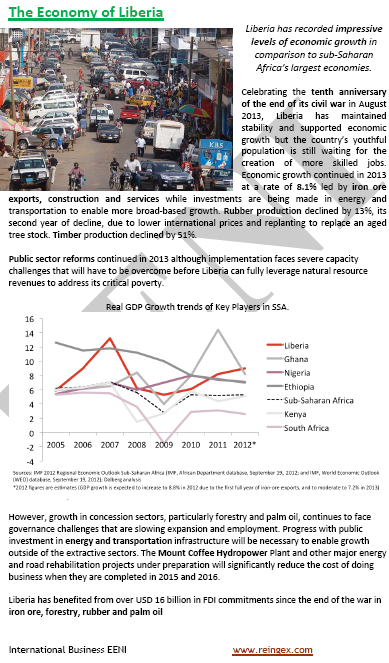
(c) EENI Global Business School (1995-2024)
We do not use cookies
Top of this page


